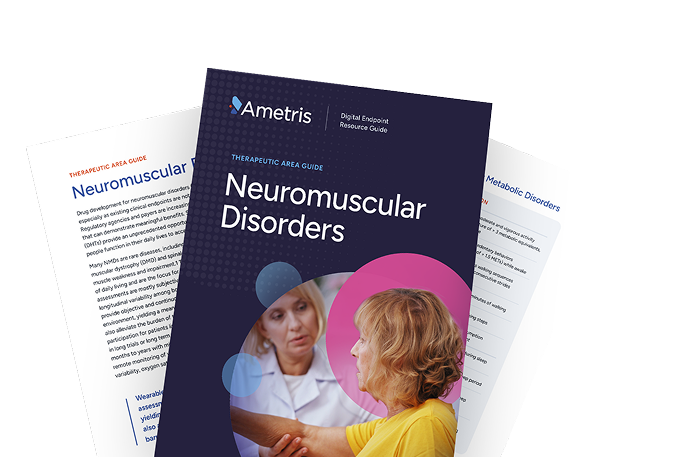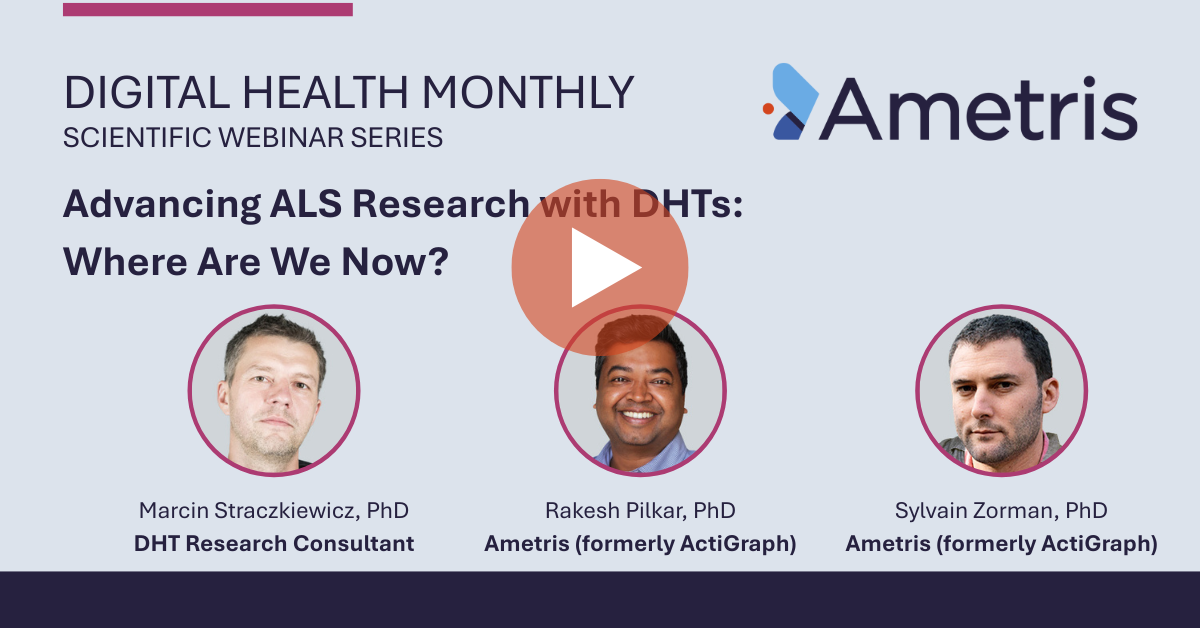THERAPEUTIC EXPERTISE
Solutions for
Neuromuscular
Disorder Research
Existing clinical outcome measures are often inadequate for assessing drug efficacy in neuromuscular disorder (NMD) trials, making the development of novel treatments a challenge in an area where there is a large unmet need for new therapy options. Wearable digital health technologies (DHTs) provide an unprecedented opportunity to directly and objectively assess real-world function to accelerate drug development in NMDs.
Schedule a Meeting Download the Guide





